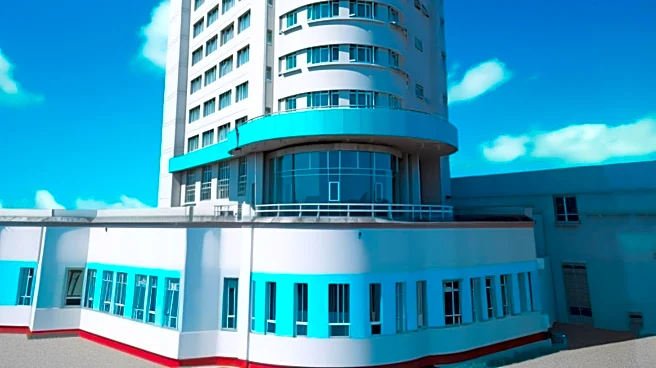What is the story about?
What's Happening?
Shmuel and Anat Harlap have made a historic donation of $180 million to Rabin Medical Center, also known as Beilinson Hospital, located in Petah Tikva, Israel. This donation is the largest ever made to an Israeli hospital and is intended for the construction of a new cardiological and neurological center, named 'Hope Tower.' The facility aims to be a beacon of hope and unity, accommodating diverse segments of Israeli society. The Hope Tower is expected to double the hospital's existing capabilities in these medical fields and is scheduled to open in 2027. The donation is seen as a transformative contribution to Israeli healthcare, setting a new standard for philanthropy in the region.
Why It's Important?
The donation by the Harlaps is significant as it represents a major investment in the future of healthcare in Israel, potentially elevating Rabin Medical Center to one of the leading medical institutions globally. This contribution comes at a time when large-scale philanthropic efforts are increasingly vital for advancing medical research and facilities. The Hope Tower will integrate cutting-edge technology and research, providing advanced treatment options that could benefit thousands of patients. The donation also underscores the importance of domestic philanthropy in strengthening national healthcare systems, particularly in the wake of recent challenges faced by the country.
What's Next?
The construction of Hope Tower is underway, with completion expected in 2027. As the facility develops, it will likely attract further investments and collaborations in medical research and technology. The hospital's enhanced capabilities may lead to increased international partnerships and recognition, further solidifying its status as a premier medical center. Stakeholders in the healthcare sector, including government bodies and private entities, may look to this project as a model for future philanthropic endeavors and healthcare advancements.
Beyond the Headlines
The donation reflects broader cultural and ethical dimensions, emphasizing unity and hope across diverse societal groups in Israel. It highlights the role of philanthropy in fostering social cohesion and addressing public health needs. The Hope Tower's construction may also influence long-term shifts in healthcare policy and investment strategies, encouraging more significant contributions from domestic and international donors.


















